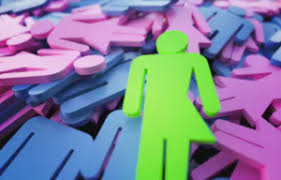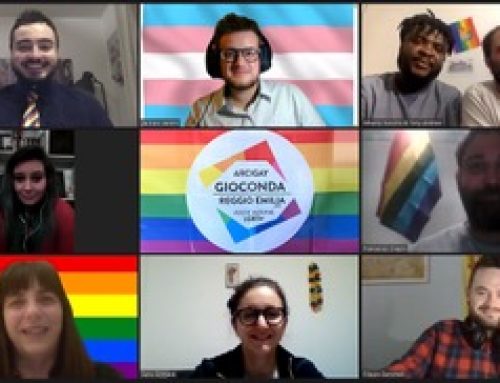Interview with O.M.
By Margherita Graglia
What is gender for you?
I believe it is a word that can have multiple meanings.
One is the ‘social’ meanings we give to gender: on the basis of how we are read (men or women), we are subject to different behaviors and / or discrimination.
However, there is a gender identity in people that is not influenced by how we are perceived.
I don’t know what gender is, not having one (I am agender) but from the experiences of others I think I can define it as a “feeling of belonging (or non-belonging) to a certain social group, which can have (but not necessarily) influences on expression of gender and on the behavior of the individual”.
How do you live your being an agender?
I have defined myself as non-binary for two years now, even though the process of “questionin” my gender started earlier. I am not one of those people who ‘always knew’ or who felt discomfort seeing, during puberty, their body develop into a certain way. I would say that I have always quite ignored the existence of gender and of the differences (especially social) between the sexes, until at about 20 I started, thanks to Facebook and other social networks, to meet people who defined themselves as non-binary.
I began to realize (or should I say accept and therefore feel?) a lot of annoyance in seeing myself and being seen as a “woman” (having been assigned to the female gender at birth).
I want to specify that when I say that it bothered me to be seen as a woman, I don’t mean that I felt dysphoria towards my physical appearance. The annoyance was directed at “social identity”.
So I had no problems or dysphoria towards my body seen as female, only discomfort towards expectations, behavior towards me because seen as a woman and to socially group myself with ‘women’.
But imagining myself as a man (in this case I mean both as a physical aspect and as just a social identity) gave me the same sense of strangeness, that wasn’t right either.
It took me a while (months) to define myself as non-binary, although I already knew the term and knew people who defined themselves as such. I think the reason it was difficult for me to accept it is that I didn’t think I had enough ‘proof’ to define myself as something other than what was imposed on me.
And also for a problem of “lack of representation”: I said that if non-binary people were so few in percentage (at least that was what I thought), how many chances was there that I was one of them?
The definition of non-binary is very broad, and grouping all non-binary people under a single definition is somewhat limiting. Non binary only means “not only man” and / or “not only woman”, but it does not include what one is, only what one is not. There are non-binary people with a fluid gender that changes over time. People who have two genders, people who don’t have any gender, etc.
I recognize myself in the category of agender, meaning that I don’t feel I have a gender identity. And that perhaps explains why I didn’t care much like that until I started getting bothered by what was assigned to me.
I decided to apply this definition to myself after a while I had used the word non-binary, and I still define myself as such because non-binary is a broad term, while agender is a more specific definition. It was difficult to understand that I was an agender because I was looking for another identity to “feel” with which to replace the term woman, but I could not feel any belonging to gender categories. After a while I gave up and realized that if I couldn’t find it, it probably wasn’t there, and therefore I was agender.




Scrivi un commento